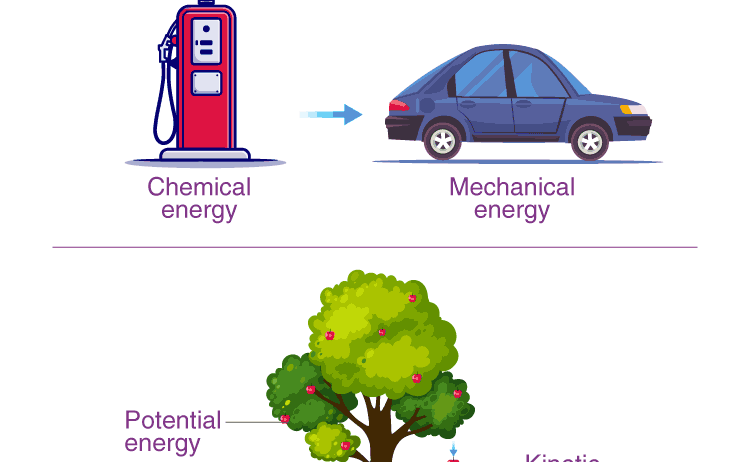The Law of Conservation of Energy is a ubiquitous principle that governs the interplay of energy transformations within our universe. This law states that energy cannot be created or destroyed; it can only be transformed from one form to another. Understanding this principle is crucial for exploring various fields, from physics to environmental studies, and for developing sustainable practices that mitigate our impact on the planet.
In this article, we delve into the intricacies of the Law of Conservation of Energy, exploring its fundamental principles, real-world applications, and implications for sustainability. The discussion is structured around several key areas, engaging readers with both theoretical insights and practical ramifications.
Energy: The Multifaceted Concept
Energy is an abstract notion that manifests in various forms, including kinetic, potential, thermal, and chemical energy. Each form of energy has its own characteristics and behaviors, yet all adhere to the overarching Law of Conservation of Energy. Kinetic energy, for instance, is the energy of motion, exemplified by a rolling ball, whereas potential energy refers to stored energy, such as that possessed by a compressed spring.
The interconversion of these energy forms is ubiquitous in everyday life—think about driving a car, where chemical energy from fuel is transformed into kinetic energy, propelling you forward. Understanding these conversions allows us not only to grasp the mechanics of movement and force but also to recognize the larger implications on energy consumption and environmental impact.
Historical Context and Discovery
The Law of Conservation of Energy was not always universally accepted. In the early 19th century, scientists began to formulate theories about energy transformation. Notably, the work of physicists such as James Prescott Joule and Hermann von Helmholtz solidified this law as a fundamental principle of thermodynamics.
This historical development is pivotal, illustrating how scientific understanding evolves, often challenging preconceived notions. Ultimately, the establishment of this law represented a paradigm shift in our comprehension of energy, elucidating its immutable presence and ceaseless transitions throughout nature.
Real-World Applications in Technology
Today, the Law of Conservation of Energy informs a plethora of technological innovations. For instance, in the realm of renewable energy, harnessing solar power epitomizes this law. Solar panels convert incoming sunlight (radiative energy) into electrical energy, exemplifying the transformative properties outlined by the conservation principle.
Furthermore, vehicles utilizing regenerative braking can convert kinetic energy back into stored energy. This innovation enhances fuel efficiency, showcasing how energy conservation principles can lead to sustainable advancements in transportation.
Energy Conservation in Daily Life
Understanding the Law of Conservation of Energy enables individuals to adopt more sustainable practices in their daily lives. Simple actions like turning off unnecessary lights, using energy-efficient appliances, and optimizing thermostat settings can significantly reduce energy consumption while still maintaining comfort and convenience.
Moreover, awareness of energy conservation can drive policy changes and corporate responsibility. When consumers demand sustainable practices from businesses, it encourages a shift toward energy-efficient technologies and practices within the industry.
The Environmental Implications of Energy Conservation
The respect for the Law of Conservation of Energy also has profound implications for environmental stewardship. Overexploitation of resources and reliance on fossil fuels has led to alarming environmental degradation. By embracing the tenets of energy conservation, societies can mitigate adverse effects like climate change, habitat destruction, and pollution.
Investing in renewable energy sources and energy efficiency does not only adhere to the energy conservation principle; it fosters a more sustainable relationship with the environment. This approach fosters resilience against fluctuating resource availability and climate challenges, creating pathways for more sustainable economies.
The Future of Energy: A Sustainable Paradigm
As global energy demands continue to rise, the Law of Conservation of Energy serves as a cornerstone for developing future energy solutions. The transition from fossil fuels to renewable energy sources will rely heavily on understanding energy transformations and promoting efficiency. This synergy will be fundamental in shaping a sustainable future.
Furthermore, research into innovative technologies, such as quantum batteries and advanced energy storage systems, could revolutionize energy use and accessibility. These advancements will hinge on the understanding of conservation principles, enabling societies to navigate the complexities of energy generation and consumption in a responsible manner.
Teaching the Next Generation About Energy Conservation
Education plays a critical role in understanding energy conservation. By integrating scientific principles related to the Law of Conservation of Energy into school curricula, educators can foster a generation that values sustainability. Engaging students in hands-on experiments with energy transformations can ignite curiosity and instill critical thinking skills.
When individuals comprehend the impact of their energy use, they are more likely to adopt sustainable practices. Education empowers future leaders to drive changes critical for combating environmental crises and advocating for policies grounded in energy conservation principles.
Conclusion: A Call to Action
The Law of Conservation of Energy is not merely a scientific principle; it is a guiding philosophy that shapes our relationship with the environment. By recognizing energy’s transformative nature, we not only obtain a better understanding of the physical world but also equip ourselves with the knowledge required to foster sustainable practices. Embracing energy conservation is imperative for both individual action and collective societal progress. The responsibility lies within each of us to harness this understanding for the betterment of our planet and generations to come.








